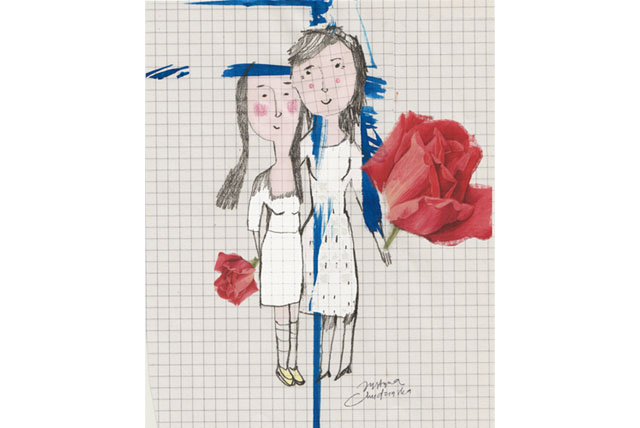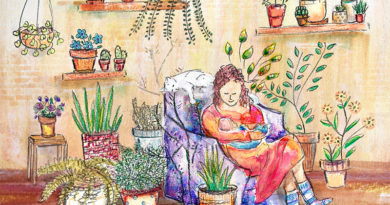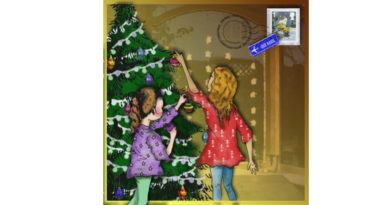Talking With Your Daughter About Growing Up
Do you remember your first period? All I can recall is being told to soak my pyjamas in a bucket of cold water. It was hardly a life-affirming moment. Nevertheless, it is worth looking back at your own experiences before you take on the weighty task of discussing menstruation with your daughter.
A woman gets around 400 or so periods from menarche to menopause, which means that the phrase “forewarned is forearmed” is apt when it comes to talking about periods.
Physical changes in your daughter can be a helpful clue that you need to jump in and broach the topic with her. You may have noticed breast budding (periods start approximately two years after breast development), or maybe you have caught a glimpse of armpit hair or pubic hair. Perhaps she has shot up in height, or you have seen some discharge on her knickers in the laundry basket.
Girls often start menstruating at around the same age their mothers did, so it’s worth considering how old you were when you started. The average age for a girl’s first period is 12, but starting at nine is perfectly normal. Not starting until the age of 15 or even 16 also falls into the “normal” category. If she starts her periods much earlier or much later than her peers, she could end up feeling like an oddity and will need your emotional support even more.
So what exactly should you tell her? It is likely your daughter has already acquired some knowledge, perhaps from friends, schoolmates, older female relatives, or even her own research. A good starting point is to establish what she already knows. Myths abound, and she will probably be relieved to get a reliable version from you.
This does not mean that you need to prepare a lecture. A simple explanation of the salient details will suffice: blood is released from the vagina once a month and this is called your period. It is a sign that you are developing into a woman with a body capable of having a baby; these changes are triggered by hormones.
This may be too basic for your needs, so ponder the topic beforehand to clarify which points you want to get across to your daughter. Who told you about periods? Did they do a good job? What do you wish you had been told back then?
Time spent covering the huge variation in periods is worthwhile. Think about mentioning the duration (a couple of days to a week or so), the heaviness (a brownish bit of discharge one month to gushing blood the next), cycle length (the much-talked-about 28-day cycle is not necessarily normal for her), and the possibility of premenstrual symptoms such as tummy cramps, backache, moodiness, weepiness, breast tenderness, bloating, and spots.
Pain associated with periods may not start until 6-12 months after her first period. This is because there is often no actual ovulation associated with those initial periods. Your daughter may find that she copes well with her periods at first, but finds them harder to deal with later when she experiences new symptoms. It can take a good couple of years for periods to settle down into anything resembling a predictable pattern with predictable symptoms.
If she is curious and interested, you could go into the biological process in more detail – talking about how ovaries release one egg per month, how the uterus lines itself, and if the egg is not fertilised, how the uterus lining is shed during menstruation. This level of information may prove too overwhelming for the first sitting, so can be saved for a later date.
Delving into relationships, responsibility and contraception (and a full-on talk about sex) is probably too much for the first period talk. But don’t completely dismiss these topics. Just thinking through them in your head means you will be better prepared if your daughter asks you a direct question out of the blue.
There are a lot of factors to digest. Try not to think of it as one big daunting talk (after which you say, “Phew, thank goodness that’s over”). Think of the period talk as being a series of mini-talks over time. Snippets of chat slipped into convenient slots as you go about everyday family life. You could make a throwaway remark when you take her bra shopping, or when you push the supermarket trolley past the feminine hygiene products. This is about setting down foundations, to reduce the load you will tackle when you talk together in more detail.
There are many practical aspects to go through too. These basics will be a steep learning curve for her – how to stick a pad into her underwear, how often to change it, the different absorbencies for day and night, choosing whether to use pads, tampons, or a menstrual cup, what to do if she is caught short, and how on earth should she dispose of them? You know your daughter best; you can decide together which practicalities to focus on.
There is no need for the period talk to be a burden. Break everything down. With some early preparation and groundwork before her periods start, and then ongoing support during the first year, your daughter can confidently start this new phase in her life.
By Jahura Hossain Illustration by Justyna Chudzinska
Born and brought up in London, Jahura is a U.K.-qualified doctor. She has worked in hospitals, general practice, public health, prison medicine, and the pharmaceutical industry.
© Copyright. Jahura Hossain. 2013. All rights reserved. No part of this article may be reproduced without the express consent of the author.





I would like to know more about the menstrual cup. Where does one get these? Does one need to be fitted? What are the pros and cons?
You don’t need to get fitted for a menstrual cup.
Menstrual cups are quite different from contraceptive diaphragms or caps which do need to be fitted by a trained doctor or nurse.
Many pharmacies stock menstrual cups, and they can also be bought on-line. Various brands are available.
They can be cost-effective (last for ages). They can be more environmentally friendly (fewer tampons and sanitary towels ending up in our waste disposal systems).
They can be fiddly and may take a bit of time to get used to. Some people may feel squeamish about emptying the menstrual blood out.
If you (or your daughter) don’t feel a menstrual cup is right for the early days, it’s an option to bear in mind for later on.
Yes, my 19-year-old daughter says no way to this, but she might change her mind one day.